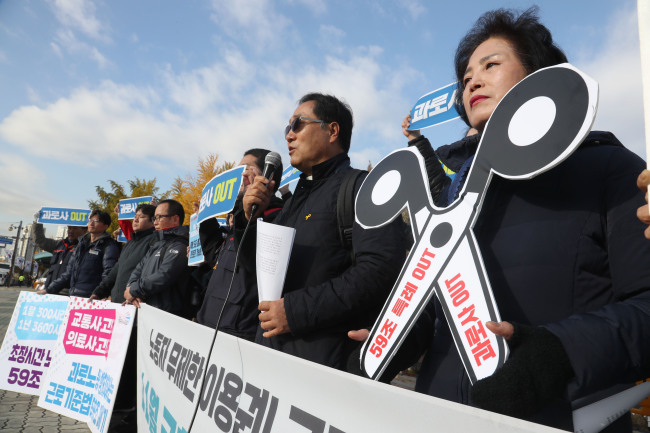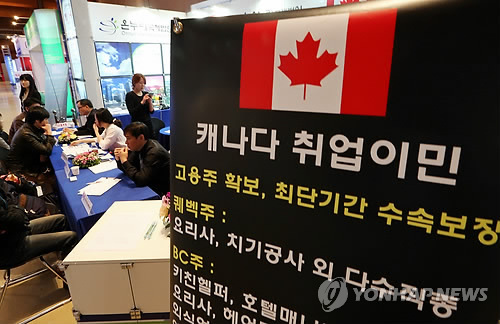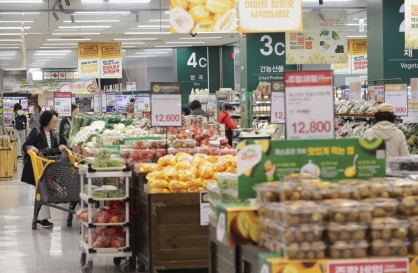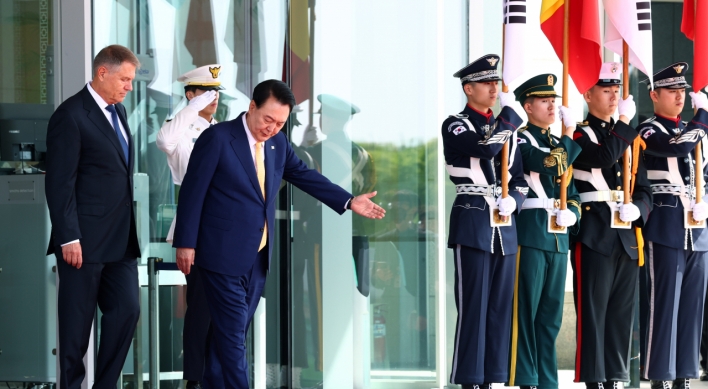[Newsmaker] Why Koreans want to leave ‘Hell Joseon’
South Koreans say stiff competition, uneven playing field and lack of social protection drive them to seek to move abroad
By Ock Hyun-juPublished : Dec. 10, 2017 - 18:11
South Korea dazzles the world with exports of sensational K-pop music, cutting-edge smartphones and cars, but inside the country some people are seeking to flee what they call a “living hell” and restart their lives elsewhere.
Many South Koreans, who have since their early years faced constant competition to get accepted into a prestigious university, secure a well-paid job and then get a promotion at work, say they have had enough.
“I wake up at about 5:30 a.m. every morning, go to work and come back home at 11 p.m. at night. At weekends, I get too tired, sleep or do work I couldn’t get done during the week,” Park Geun-young, 35, told The Korea Herald. “I feel like I have no life here.”
Many South Koreans, who have since their early years faced constant competition to get accepted into a prestigious university, secure a well-paid job and then get a promotion at work, say they have had enough.
“I wake up at about 5:30 a.m. every morning, go to work and come back home at 11 p.m. at night. At weekends, I get too tired, sleep or do work I couldn’t get done during the week,” Park Geun-young, 35, told The Korea Herald. “I feel like I have no life here.”

“I am stressed about the social atmosphere that pushes me to compare myself to others and compete for better pay, a better house and better education for my children all the time,” said the office worker. “All I want is to be happy and enjoy the moment without having to care about what others think.”
For Park, who lived in Australia for two years, the remaining option is to leave the country and find hope elsewhere. “I know that life abroad wouldn’t be perfect, but at least, I think my work-life balance will be improved and I could enjoy the present more,” she said.
She is not alone in feeling disenchanted about life in South Korea and seeking to escape from it.
“We constantly receive inquiries from Koreans seeking to move to other countries for job opportunities and education for children,” said an official from a privately-run Boram Emigration Corporation.
According to a survey on 3,710 Korean adults conducted by a job portal site Incruit from Nov. 28 to Dec. 5, 62.7 percent of the respondents agreed that South Korea is a “Hell Joseon.”
“Hell Joseon” is a term coined in 2015, which harks back to the five-century-long, feudal Joseon dynasty’s class system and lampoons a growing inequality between the haves and not-haves in Korean society.
The survey showed that some 54 percent of them had considered moving abroad. Their favored destination was Canada at 25.2 percent, followed by New Zealand at 21.2 percent, Singapore at 8.6 percent and Australia at 8.1 percent. More than half of them, 56 percent, said that they were willing to give up their Korean nationality if they succeeded in settling in another country.
A desire to leave Korea seems to be more prevalent among the young generation who struggle to find a job amid the high unemployment rate. The youth unemployment rate for those aged 15 to 29 was 8.6 percent in October, hitting an all-time low.
After they land a job, many struggle to find a balance between family and work in the country, where people on average work 2,069 hours per year as of 2016, the second longest among member counties of the Organization of Economic Cooperation and Development.
In a 2015 poll by a market research firm by Macromill Embrain on 1,000 adults, 57.9 percent said that they would not want to be born again in South Korea. In a survey that allowed multiple-choice answers, 76.6 percent of the respondents said that they wanted to live in a country where they can be more relaxed, 62.9 percent said they wanted to live in a country with a solid welfare system and 61.7 percent said they wanted to get out of the fierce competition in society.

But the reason they want to leave Korea is not just about the fierce competition. It is more about frustration and helplessness stemming from a social structure which seems to benefit only those who are privileged, said a 30-year-old student.
“I think that the competition in Korean society is not something I can get over through efforts,” said the student, who only wanted to be identified by his surname Jung. “For someone like me without a good educational background and wealthy parents, there are only limited opportunities to enter the system.”
A series of irregularities in society laid bare by a corruption scandal that removed former President Park Geun-hye from power in March and sent many of high-profile government officials and business tycoons to jail further eroded hope for the future, he said.
“I cannot put my children through such an unfair system and I want them to live in a less competitive society,” Jung said.
Kim Bong-moon, 31, who quit a job as a journalist, studied IT through a masters’ program at a university in New Zealand and moved to the country last year, said that he has no regrets about leaving Korea.
“On the surface, my life in Korea was not bad and I was confident that I could do well in the competition,” said Kim, who now works as an engineer. “But by living that way, I realized that there would be nothing left for me. It was not a sustainable way of living.”
“One of the major difference between life in Korea and life in New Zealand is that I don’t have to lock myself in a cycle (of competition and a hierarchical culture) and can be on equal footing with everyone,” he said. “And people are more accepting of differences.”
But he warned about fantasizing about moving outside of Korea. “Moving abroad doesn’t guarantee one’s happiness or solve all the problems from Korea.”
Lee Byung-hoon, a sociology professor at Chung-Ang University, said that the ‘Hell Joseon’ phenomenon is a reflection of South Koreans of all ages struggling to survive amid a lack of jobs and unstable livelihoods.
“By objective yardsticks, South Korea is better off than many other countries. But South Koreans feel discontent because of an inequality of opportunity. They feel like the playing field is uneven in the first place and their efforts will not pay off,” he said.
“Such a problem has been developing for a long time, so it won’t change overnight,” he said. “The government should work to improve protection for the marginalized and improve the fairness of society through policies.”
(laeticia.ock@heraldcorp.com)
-
Articles by Ock Hyun-ju




![[AtoZ into Korean mind] Humor in Korea: Navigating the line between what's funny and not](http://res.heraldm.com/phpwas/restmb_idxmake.php?idx=644&simg=/content/image/2024/04/22/20240422050642_0.jpg&u=)




![[Herald Interview] Why Toss invited hackers to penetrate its system](http://res.heraldm.com/phpwas/restmb_idxmake.php?idx=644&simg=/content/image/2024/04/22/20240422050569_0.jpg&u=20240422150649)

![[Graphic News] 77% of young Koreans still financially dependent](http://res.heraldm.com/phpwas/restmb_idxmake.php?idx=644&simg=/content/image/2024/04/22/20240422050762_0.gif&u=)




![[Exclusive] Korean military set to ban iPhones over 'security' concerns](http://res.heraldm.com/phpwas/restmb_idxmake.php?idx=652&simg=/content/image/2024/04/23/20240423050599_0.jpg&u=)


![[Herald Review] Xdinary Heroes kicks off five-month-long project with solo concert, teases new album](http://res.heraldm.com/phpwas/restmb_idxmake.php?idx=652&simg=/content/image/2024/04/22/20240422050539_0.jpg&u=20240422152154)
